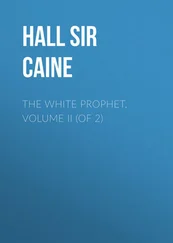Charles greeted his half-brother joyfully. Dunois had hardly changed over the course of nearly ten years; there were no wrinkles yet in his weatherbeaten, sunburnt face; no grey in his sandy hair; his green eyes were still as bright as they had been in his childhood. He was dressed in leather and mail; his escort was strongly armed. When Charles jokingly asked about the reason for this martial parade, Dunois frowned and said seriously, “I am travelling through, brother. I have just conveyed a prisoner from Paris to the King’s residence, Nonette in Bourbon. I have to speak to you about it.”
The news which Dunois gave him alarmed Charles, but did not surprise him. It concerned his son-in-law Alençon, whose behavior Charles had observed for so long with suspicion and anxiety.
The King, worn out by defeats and disappointments, had lapsed anew into seclusion, timidity and doubt, and had ordered the ecclesiastic authorities and the Parlement to initiate an inquiry in Rouen and Paris into the manner in which the late Jeanne, Maid of Orléans, had been condemned and executed. In the silence of his apartments the King, afflicted with illness and worry, was prey to morbid fears: he remembered that Agnes Sorel had once reproached him for his indifference to the fate of the Maid whom, in a sense, he had to thank for his crown. At that time he had brusquely rejected her advice that Jeanne’s good name should be restored. But now he felt that his omission was wrong, that it was a sin which weighed heavily upon his conscience. He dared not die before he had discharged his obligation.
Among the many who came to Paris as witnesses in this matter was Alençon, who had spoken repeatedly with Jeanne. While he was making his statement, pleased at the opportunity to place the King’s actions in an unfavorable light, certain letters were discovered on an English spy in Brittany. In these letters which had been written and signed by Alençon, the Duke expressed his desire to conclude an alliance with Henry VI, put himself and the inhabitants of his domain in the service of England, and supplied the names of coastal towns where an invading army could land.
The King did not hesitate; he immediately sent Dunois to Paris to take Alençon prisoner on a charge of high treason. In the castle of Nonette, Alençon confessed his guilt; he had acted, he said, because he felt he had been neglected and given short shrift by the King.
Charles listened in silence. He could not get over this news: the disgrace of Alençon, whose children were Charles’ grandchildren, cast a slur on the honor of Orléans.
“This will end nastily for Alençon,” Dunois remarked gruffly; he had distrusted Charles’ son-in-law practically from the beginning. “It is pretty certain that all his possessions will be declared forfeit and the domain will revert again to the Crown. But I would be surprised if he got off with his life; the King seems firmly resolved to condemn Alençon to the scaffold.”
“Will there be no trial?” Charles asked slowly.
Dunois nodded. “That is why I am here, brother. The trial begins in Vendome on the fifteenth of December. The King summons you there to give your opinion of this business. Do not refuse,” he added hastily, when he saw Charles make a movement of protest. “Our friends of Brittany and Burgundy have defaulted and it goes without saying that we will not see the Dauphin. If you are interested in salvaging whatever can be saved for your grandchildren, you must seize this chance to act as spokesman.”
Charles went on sitting for a few minutes, his head turned away. “It goes against my grain to become involved once again in a questionable matter,” he said at last. “Surely you realize that in order to accomplish anything, I shall have to plead extenuating circumstances for Alençon. But still, you are right. I shall prepare myself for the hearing.”
The trial was held in the great hall of the castle of Vendome. Stands hung with tapestries stood opposite and on both sides of the royal throne; on these platforms sat the great lords of the Kingdom, four rows deep: first, the vassals of the Crown and the princes of the Church; then the representatives of the nobility and the clergy, and finally those who would speak for the burghers. Armed sentries guarded the approaches to the stands and the open spaces between them. A great crowd of spectators filled the hall, overflowing outside onto the steps and into the corridors. At the King’s right hand sat his youngest son and his blood relative, Charles d’Orléans.
The journey and the sojourn at the court had tired Charles greatly; he was not used to all this excitement. In addition, he was uncertain about the effect his words would have on a company most of whom wanted to see Alençon sentenced to death. Only the Archbishop of Reims and an envoy from Burgundy would ask for clemency, the first as a mere formality, the second chiefly to thwart the King.
From time to time Charles glanced at his cousin: he found the King sadly altered; his features were slack, his eyes restless; little or nothing remained of his authoritative tone, his self-assured bearing. Charles knew the reasons for the King’s bitterness: the bad feeling between him and the Dauphin grieved him; he was troubled about the future of the Kingdom under such a rule and filled with regret that he could not give his beloved second son the rights that belonged to the eldest. In twelve years the Dauphin had not once visited his father; he ruled as he wished in his place of exile, surrounded by a household filled with people of unknown origin whom he had elevated to the nobility. That he was involved in other affairs as well became evident when, immediately after Alençon’s arrest, he rode at full speed across France into Flanders and there sought safe accommodation at Burgundy’s court. The King bent under this blow. To Charles he remarked with a sour, nervous laugh when the subject came up, “Burgundy does not know what he is doing; he thinks he will gain an advantage by harboring the future King of France. But he has let a fox into his hencoop!”
The King, motionless in the stiff folds of his robes of state, his face obscured by the broad brim of his hat, listened impassively to the distinguished speakers who came forward to air their opinions. After the words “death penalty” had echoed a number of times through the space around the stands, it was Charles’ turn to speak. He stood up and descended the three steep steps with difficulty. He sensed that most of those present were watching him with disapproval and mistrust; nobody doubted that he would attempt to exonerate his son-in-law, or at least try to mitigate his punishment. Charles held the paper ready on which he had made his notes, but on second thought he hid it away in his sleeve with the spectacles which he did not need now. He bowed and turned to the King.
“Monseigneur! There are three things which must be considered when one is called upon to give one’s opinion upon important affairs: the advisor himself, the person to whom advice is to be given and the matter under consideration. With regard to the first, it is written ‘multi multa sciunt et se ipsos nesciunt —many people know many things but they do not know themselves.’ When I look at myself now and consider that I must advise you about your interests and those of the Kingdom, I find it a very risky undertaking on my part, who am neither wise nor learned enough to speak here after so many capable and renowned lawyers have had their say. I carry only a candle where a number of torches are burning. I beseech you therefore to take my good intentions into account if my insight should fail me.
“Concerning my second point — the person to whom I offer my advice: I see in you my lord and master and, in addition, my blood relative, to whom obviously I am accountable. Finally I honor you as my sovereign. And when I think about that concept of ‘sovereign’, then I realize fully the deep significance of it. For you are only a man like myself, of flesh and blood, subject to dangers, threats, adversity, diseases and other afflictions. That nevertheless you have succeeded in holding the reins of government in these very difficult times is for me a sign that your sovereignty has come to you as a gift from God, the King of kings, the Lord of lords. Therefore you are called Your Most Christian Majesty, and therefore all subjects of France must serve and support you as the representative of God’s authority.
Читать дальше












